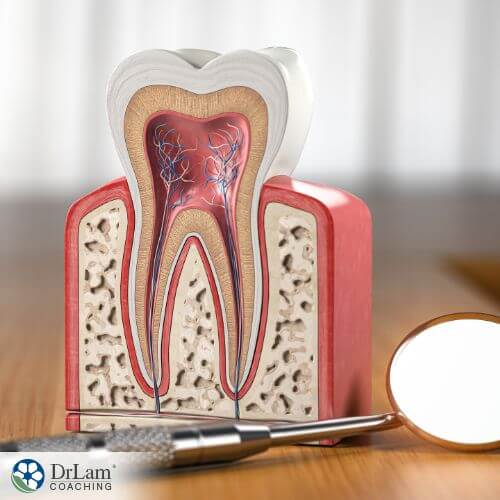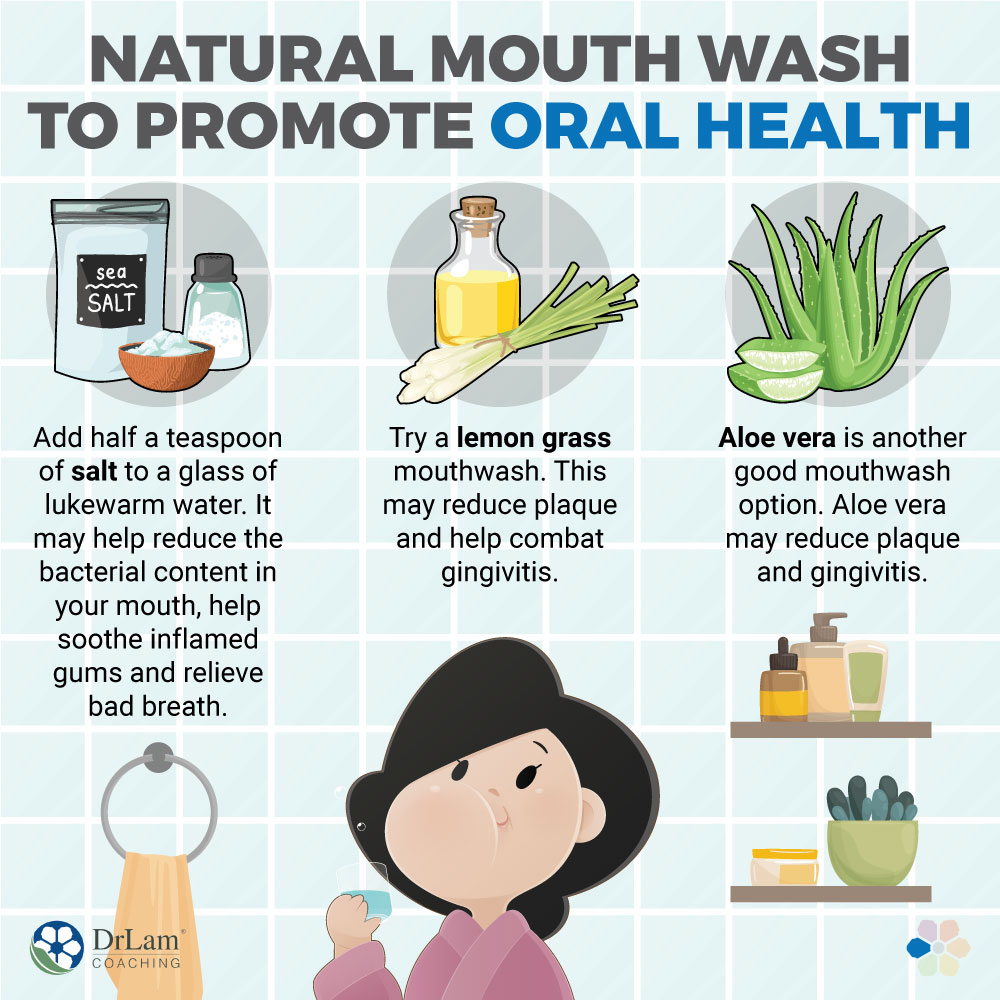 Did you know there may be an oral-cardiovascular connection? Many studies suggest that there is a strong connection between oral health and heart disease risk. The US Surgeon General’s 2000 report, Oral Health in America, supports this. According to the report, oral health may relate to over ninety percent of systemic health issues.
Did you know there may be an oral-cardiovascular connection? Many studies suggest that there is a strong connection between oral health and heart disease risk. The US Surgeon General’s 2000 report, Oral Health in America, supports this. According to the report, oral health may relate to over ninety percent of systemic health issues.
Literature does not only suggest an oral-cardiovascular connection. It also suggests a connection between poor oral health and other health issues, such as rheumatoid arthritis and cancer. Rheumatoid arthritis risk increases with the presence of Porphyromonas gingivalis, a bacterium linked to periodontal disease. Furthermore, the presence of this bacterium has also been linked to the occurrence of pancreatic cancer. That is why it is critical to understand how your oral health may affect your cardiovascular health.
There is much debate as to whether an oral-cardiovascular connection actually exists. Thus far, much literature suggests the same issues cause both oral and cardiovascular conditions. Some studies, taking various factors into account that cause oral as well as cardiovascular conditions, also show that many instances of cardiovascular disease may result from oral conditions. There are many theories about what causes the correlation between oral-cardiovascular issues.
One theory suggests that bacteria is the culprit. While bacteria in the mouth may cause oral health issues like periodontitis and gingivitis, they may also enter the bloodstream. Once in the bloodstream, the bacteria may travel to various parts of the body. There, they may cause inflammation in the blood vessels that may ultimately result in heart disease and even stroke.
Interestingly, oral bacterial remnants have been found in parts of the body such as the atherosclerotic blood vessels. These are a significant distance from the mouth.
Another theory suggests your immune response is at fault. Your immune response results in inflammation. Inflammation may cause a cascade of events, including vascular damage, that may affect not only heart health but brain health as well.
Many researchers claim there is no oral-cardiovascular connection. Instead, they put forward the idea that something else, a third factor, is at play that causes both conditions. Possible "third factors" may include smoking, not getting enough exercise, or even poor healthcare access.
However, this does not account for the incidence of heart disease in the presence of poor oral hygiene when these factors are omitted.
Over 800 different bacteria have been identified in the mouth. The most common oral condition in people is periodontal disease.
Various research shows an oral-cardiovascular connection. One such study shows a strong link between periodontal issues and various cardiovascular conditions like coronary heart disease, atherosclerosis, and several acute coronary events. Furthermore, a study indicates the presence of bacterial DNA from bacterial species called viridans streptococci in the thrombus of people with acute ischemic stroke. Those conducting the study concluded that the bacteria, traveling from the mouth cavity, may contribute to thrombi events relating to cerebrovascular conditions.
According to a study, periodontal disease increases your coronary disease risk. It further increases your risk if you are over 65 years of age.
 Studies also suggest a strong correlation between oral conditions and systemic inflammatory conditions. According to data, this association is the result of looking at host immune mediators as well as inflammatory mediators. A study, for example, showed that several bacterial species associated with periodontal disease (T. denticola, T. forsythia, A. actinomycetemconitans, and P. gingivalis) could contribute to prediabetes. Furthermore, they speculated that periodontal disease and diabetes may share comorbidities due to the presence of these bacteria.
Studies also suggest a strong correlation between oral conditions and systemic inflammatory conditions. According to data, this association is the result of looking at host immune mediators as well as inflammatory mediators. A study, for example, showed that several bacterial species associated with periodontal disease (T. denticola, T. forsythia, A. actinomycetemconitans, and P. gingivalis) could contribute to prediabetes. Furthermore, they speculated that periodontal disease and diabetes may share comorbidities due to the presence of these bacteria.
With regards to prevention, a study indicated that those practicing good oral hygiene tended to have a lower incidence of cardiovascular disease. This may be due to proper oral hygiene discouraging the presence of bacteria in the oral cavity.
According to the American Medical Association, an oral examination could allow you to determine your risk of other health issues although they may seem unrelated.
This implies there are several steps you can take to protect your oral-cardiovascular health, as we will discuss shortly. However, first, it is helpful to know how stress can affect your heart health.
The Cardionomic Circuit consists of the cardiovascular system, autonomic nervous system, and adrenal glands. It is one of the components making up part of your NeuroEndoMetabolic (NEM) stress response apparatus. Cardionomic Circuit activation takes place the moment you are exposed to stress. This stress may result from psychological, environmental, and physiological issues.
Not all three parts of the Cardionomic Circuit may be activated simultaneously, however. For example, mild stress may see your adrenals produce more cortisol with negligible differences in the autonomic or autonomic nervous systems. However, if stress persists or increases in intensity, these two systems work hard at keeping your body in a state of balance. You may also see a decline in cortisol production as stress increases, indicating the latter stages of a condition known as adrenal fatigue.
With overwork, the different components of the Cardionomic Circuit struggle to maintain balance and start becoming dysfunctional. Your Hypothalamic-Pituitary-Adrenal (HPA) axis, which controls cortisol output and initiates a NEM stress response may be the first to experience a state of dysregulation. Next is the autonomic nervous system, closely followed by the cardiovascular system.
The symptoms of a dysfunctional Cardionomic Circuit include:
Your symptoms may be mild at first. However, as they progress, they can become serious. Yet the root cause of a dysfunctional Cardionomic Circuit is stress.
 Stress may result from work environment pressure, a bacterial or viral infection, a physical injury from an accident, the pollutants from the air we breathe, and even the chemicals on or in the foods we eat. Your oral-cardiovascular health may suffer due to bacterial infections starting in the mouth that are related to these stressors.
Stress may result from work environment pressure, a bacterial or viral infection, a physical injury from an accident, the pollutants from the air we breathe, and even the chemicals on or in the foods we eat. Your oral-cardiovascular health may suffer due to bacterial infections starting in the mouth that are related to these stressors.
As part of your NEM stress response, your immune system will go into a higher gear, trying to rid your body of any foreign pathogens like bacteria. This initiates inflammation. When you experience inflammation, it indicates your body is doing everything it can to heal itself.
But sometimes, something goes wrong, and the inflammatory response does not cut off. It continues because of a constant stressful state. Ultimately, your body’s own inflammatory response causes stress, resulting in an increased NEM response. This could further add to the adrenal load while compromising Cardionomic Circuit function.
Conventional medicine looks at addressing each symptom as a separate health issue. You may get medications for one issue while the root cause is not looked at. Functional medicine, on the other hand, sees each organ system and body process as connected and addresses the body as a whole.
To reduce the risks posed by the oral-cardiovascular connection, start with proper oral hygiene. Doing so will minimize the presence of the many bacteria commonly found in the oral cavity.
Coconut oil and Arimedadi oil are both good oil-pulling options. When oil pulling, put one teaspoon of the oil in your mouth and swish it around for about twenty minutes. Spit it out into the trash, rinse your mouth, and brush your teeth. Do not swallow the oil because it contains bacteria and other toxins.
Coconut oil has many benefits. It has anti-inflammatory and antimicrobial properties. This means it can help get rid of bacteria and help address inflammation in your mouth. It may also help whiten your teeth and reduce plaque, an indicator of gingivitis.
Arimedadi oil is an Ayurvedic oil that has long been used in India to inhibit plaque growth and improve gingivitis symptoms. It may also heal mouth sores, reduce swelling, and improve gum and tooth health. You should not use this oil if you have sinusitis, however. It may aggravate your symptoms.

Various natural mouthwashes may help improve oral health and address gingivitis.
Never swallow your mouthwash, however. Always spit it out after swishing it around in your mouth for about thirty seconds.
 Certain supplements may promote oral-cardiovascular health. Others promote each individually. The following support both.
Certain supplements may promote oral-cardiovascular health. Others promote each individually. The following support both.
Please note that when considering the use of supplements for any type of health issue, please first talk to your healthcare provider. They are best able to determine the supplement’s suitability, taking your health or use of medications into account. Supplements may interact with certain medications.
B vitamins may help promote oral-cardiovascular health in several ways. They may lower your amino acid homocysteine levels. This amino acid has been linked to the incidence of heart disease. Folic acid in particular may help reduce your heart attack and stroke risk.
People with poor gum health and periodontal issues tend to have lower vitamin B levels. This is especially the case in older adults. Furthermore, people with a diet low in folate levels have an increased risk of bleeding gums. Literature also suggests that children suffering from a vitamin B12 deficiency have more gum issues than those with normal levels of this vitamin.
Drinking green tea or using a green tea extract may provide oral-cardiovascular support. The tea may lower your LDL (bad) cholesterol levels, raise your HDL (good) cholesterol levels, and lower your triglyceride count. In doing so, it may support heart health.
Concerning oral health, it may inhibit bacterial growth while reducing inflammation. It may also help with gum bleeding if suffering from periodontal disease.
Your body produces small quantities of this enzyme. It is also called ubiquinol or ubiquinone. CoQ10 has powerful antioxidant and anti-inflammatory properties. It may lower your blood pressure levels while lowering the side effects of drugs that lower your cholesterol levels.
The enzyme also has a marked effect on periodontal disease. It may reduce gum inflammation, reduce gum bleeding, and boost the levels of antioxidants in your gum tissue.
The powerful anti-inflammatory and antibacterial properties of omega-3 fatty acids are due to the presence of docosahexaenoic acid (DHA) and eicosapentaenoic acid (EPA). Omega-3 may drive down your triglyceride and blood pressure levels. This may help reduce your risk of heart disease.
Regarding periodontal disease, the antibacterial properties of these fatty acids may help reduce the number of bad bacteria in your oral cavity. It may also reduce plaque levels and protect against gum damage.
Your oral-cardiovascular health may have a closer connection than most of us think. Certain practices may help boost your oral and cardiovascular health, like good oral hygiene, oil pulling, using a natural mouthwash, and taking certain supplements.
If you would like to know more about how cardiovascular health and oral health may connect to other health risk factors and how to manage them, the team at Dr. Lam Coaching can help. We offer a free** no-obligation phone consultation at +1 (626) 571-1234 where we will privately discuss your concerns and offer workable solutions. Alternatively, you can send a question via the Ask The Doctor system by clicking here.
The oral-cardiovascular connection can affect your adrenal health. Bacteria can cause both oral and cardiovascular implications that add stress to your adrenals. Similarly, impaired adrenal function may further complicate oral and cardiovascular conditions. Oral-cardiovascular and adrenal health are closely connected.
